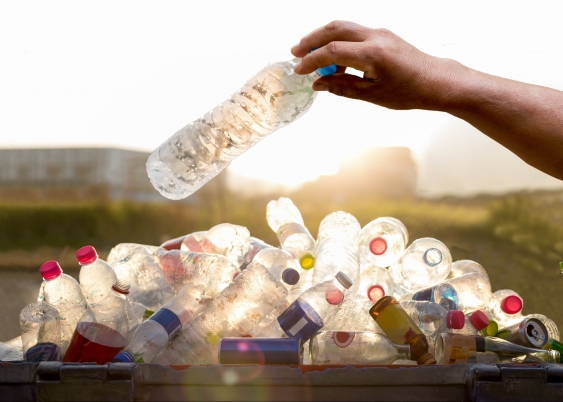UNSW receives $17m in latest round of CRC-P funding
More than $17 million in grants received across optometry, recycled waste plastics, solar technology, silicon products, wireless technology and cobalt production.
More than $17 million in grants received across optometry, recycled waste plastics, solar technology, silicon products, wireless technology and cobalt production.

Yolande Hutchinson
UNSW Sydney External Engagement
0420 845 023
y.hutchinson@unsw.edu.au
UNSW Sydney researchers have received funding for seven industry-led projects in the latest round of the federal government’s Cooperative Research Centres Projects (CRC-P) program. The projects involving UNSW researchers received a total of over $17 million in grants across optometry, recycled waste plastics, solar technology, silicon products, wireless technology and cobalt production.
A project developing AI capabilities to improve optometry accuracy for patient diagnoses and referrals has been awarded over $2.98 million. The project is led by global technology company Big Picture Medical, in collaboration with UNSW Science Scientia Professor Fiona Stapleton and Professor Michael Kalloniatis, Director of the Centre for Eye Health (CFEH) which is a joint initiative of Guide Dogs NSW/ACT and UNSW. The system will combine an optometrist’s expertise with AI capabilities that analyse patient eye health data to achieve high-level accuracy for diagnosis and referrals.
UNSW Science Scientia Prof Veena Sahajwalla is involved in a project with Wosup Australia and Spark Furniture, developing micro-factories for recycling waste plastics into engineered products. The renewable waste project will receive $3 million. Single-use plastics are currently a significant national problem, currently stockpiled at Australian landfills and waste management sites. The project plans to turn this enormous challenge into an opportunity to create high quality engineered product for manufacturers via distributed micro-factories.
Flame Security International Pty Ltd is leading a project team including UNSW Engineering Professor Guan Yeoh to commercialise a solar polymer membrane called Solar Skin. The project will receive $3 million in funding and aims to recapture Australia's global leadership in solar technology. Solar Skin can generate power from both direct and indirect sunlight from vertical and horizontal surfaces, potentially turning every CBD and local government area into sustainable and green power stations.
A project developing silicon products for the emerging Australian and international quantum computing network has been awarded $3 million. The project is led by Silex Systems Limited, in collaboration with UNSW Science Scientia Professor Sven Rogge and Silicon Quantum Computing.
UNSW Science A/Prof Suzanne Neville is involved in a project led by Cobalt Blue Holdings Ltd to assess the production of battery-grade cobalt and sulphur. The project will receive $2.4 million and if successful, the new process will double Australia’s cobalt production.
Roobuck Pty Ltd is leading a project team including UNSW Engineering Dr Binghao Li, to develop new wireless technology for underground mines. The project will receive $2 million to develop a world-first wireless network integrating four major wireless technologies into a single platform, improving the productivity and safety of mines.

A project recycling plastics by sensing and treating label contamination received funding as part of the eighth round of CRC-P funding.
UNSW Engineering Associate Professor Yansong Shen is involved in a project led by Pegras Asia Pacific Pty Ltd to recycle plastics by sensing and treating label contamination. The project will receive $650,000.
More than $25 million worth of grants were delivered to nine projects as part of the eighth round of the program announced by Minister for Industry, Science and Technology Karen Andrews this week. The CRC-P Program supports collaborations between industry, researchers and the community. The focus is on linking researchers with industry to develop products with commercial uses.
UNSW Dean of Science Professor Emma Johnston is thrilled is to see so many UNSW researchers receive funding for collaborative research projects.
“It’s very exciting to see so many of our researchers using their skills to solve industry problems. Developing strong relationships with industry and community partners is essential in translating our research into positive outcomes for society,” Professor Johnston said.
More information and a full list of recipients can be found on the Federal Government’s Business website.